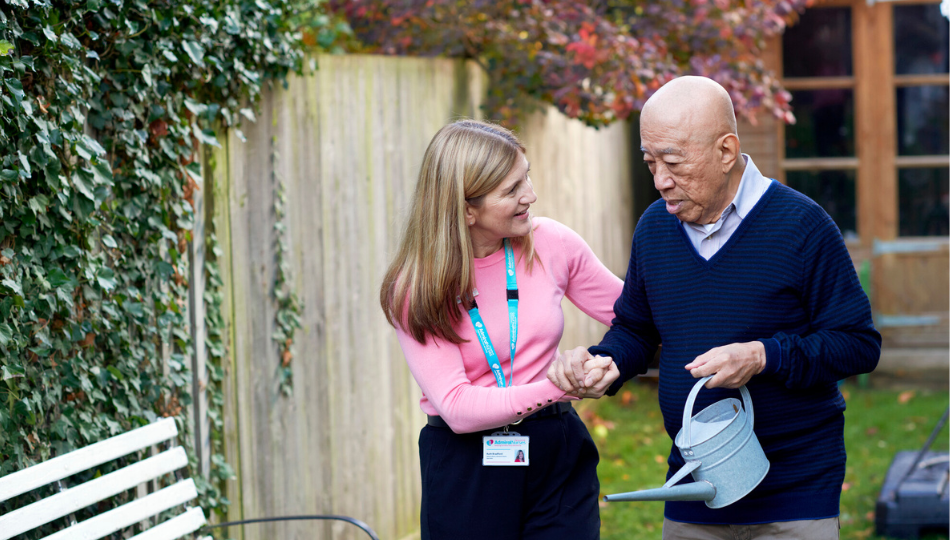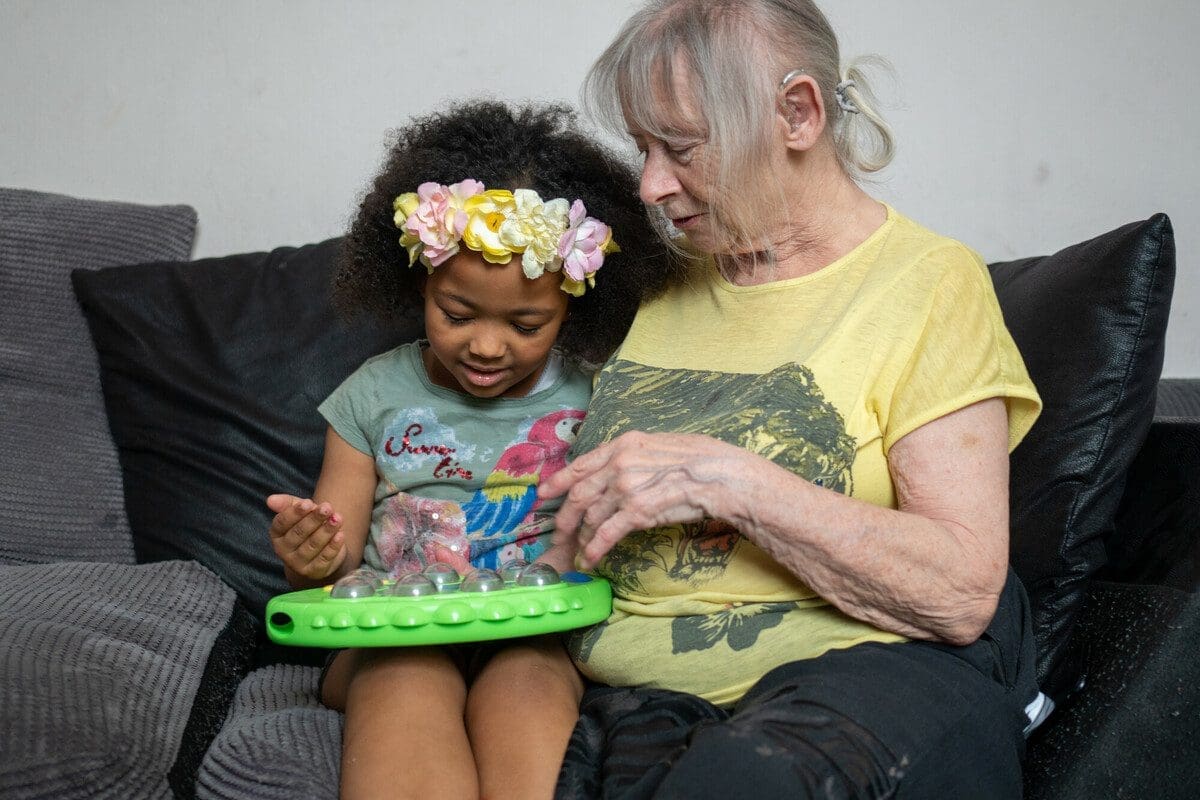
Start a Remembrance Fund
Create an online memorial to remember your loved one using MuchLoved.
When Steve’s mum, who had dementia, was hospitalised after a fall, Steve turned to Dementia UK’s Helpline for support.
Mum was a formidable character and very funny. Dad worked for the Foreign Office, and together, they travelled the world for 40 years. Mum taught English as a foreign language and supported refugees in Australia and the UK. She always put other people before herself.
Mum was diagnosed with Alzheimer’s disease at the age of 77. The first sign was memory loss, and as her condition progressed, her sleep patterns became erratic and she really needed routine. She was always such a polite person, but she became easily frustrated.
It was hard to see Mum’s decline. Following a particularly bad fall, she was hospitalised, which was very traumatic. It was during the Covid-19 pandemic so we couldn’t visit her, and she couldn’t understand why.
I initially found it difficult to reach out for support. I think sometimes as men, we are not so good at asking for help when we need it. I personally found it difficult expressing myself during such an emotional situation and felt like I should be able to manage it myself.
I became very worried about Mum’s worsening condition, particularly her mobility and her ability to continue to live at home. I was also worried about Dad’s wellbeing as her sole carer. It was clearly becoming a lot for him to take on and it was having a visible impact on him. But he didn’t want to seek help and wanted to handle it himself. He loved my mum very much and I think he felt a sense of duty and wanted to be the one to look after her.

I felt desperate – and that’s when I called the Dementia UK Helpline and spoke to Joe, a dementia specialist Admiral Nurse. Mum’s dementia had felt like a long mourning process – I was losing bits of her every day. It was so helpful to talk to someone who understood what I was going through.
I knew it wasn’t practical for Mum to live at home anymore, but I didn’t know anything about care homes. Joe told me everything I needed to consider when looking for a care home, including information on how we might fund Mum’s care. He also put me in touch with the local Admiral Nurse service.
I found speaking to Joe very valuable. I called him many times. He was so understanding and there was a level of male-to-male empathy which I found very reassuring. I remember crying down the phone and I don’t cry often.
Sadly, after six weeks in hospital, Mum deteriorated rapidly. We all knew the end was coming, but we had to be fully masked up to be with her, and we could only see her for 30 minutes. It was a very sad ending for someone who had made such a contribution to other people’s lives.
I wanted to do something in Mum’s memory, so I set up a MuchLoved online remembrance page so people could donate to Dementia UK, and over the years, people have continued to donate generously. I have now raised over £10,000, and I’m keen to keep raising more.
Dementia is a family experience, but all the interactions with the GP were between Mum and Dad, not the wider family, so it was extremely helpful for me to speak to Joe. I was then able to pass on his advice to my dad and siblings.
At a time of extreme stress, Joe provided us with comfort and guidance. I feel indebted to him for his support at our time of need. I can’t thank him enough.

Create an online memorial to remember your loved one using MuchLoved.

Help us raise vital funds, improve care and support for families facing dementia and spread the word about our specialist dementia nurses.

Sharing your story with Dementia UK can help to inspire and reassure others who may be going through similar things.